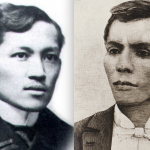Chapter II – Autonomous Territories
Article 188. In the exercise of the right to self-government recognized in Article 1 of this Constitution, an autonomous territory may be created in any part of the country upon a petition addressed to the National Assembly by a majority of contiguous, compact and adjacent provinces, highly urbanized and component cities, and cities and municipalities in metropolitan areas through a resolution of their respective legislative bodies.
In exceptional cases, a province may be established as an autonomous territory based on area, population, necessity, geographical distance, environmental, economic and fiscal viability and other special attributes.
Article 189. Within one year from the filing of the bill based upon the petitions and initiatives, the National Assembly shall pass an organic act, which shall define the basic structure of government for the autonomous territory, consisting of a unicameral territorial assembly whose members shall be elective and representative of the constituent political units. The organic acts shall provide for courts consistent with the provisions of their constitution and national laws.
The creation of the autonomous territories shall be effective when ratified by a majority of the votes cast by their proposed constituent units in a plebiscite called for the purpose.
Article 190. The autonomous territories shall support the National Government in maintaining the integrity and independence of the Republic and shall comply with and enforce this Constitution and all national laws.
Article 191. When a law of an autonomous territory or a local government is inconsistent with a national law, the latter shall prevail, and the former shall, to the extent of the inconsistency, be invalid.
Article 192. Within its territorial jurisdiction and subject to the provisions of this Constitution and the national laws, the organic act of the autonomous territories shall provide for primary legislative powers of their assemblies over the following:
- Administrative organization, planning, budget, and management;
- Creation of sources of revenues and finance;
- Agriculture and fisheries;
- Natural resources, energy, environment, indigenous appropriate technologies and inventions;
- Trade, industry, and tourism;
- Labor and employment;
- Public works, transportation, except railways, shipping and aviation;
- Health and social welfare;
- Education and the development of language, culture and the arts as part of the cultural heritage;
- Ancestral domain and natural resources;
- Housing, land use and development;
- Urban and rural planning and development; and
- Such other matters as may be authorized by law for the promotion of the general welfare of the people of the autonomous territory.




 I believe: This is a CoRRECT™ Video with a very positive message
I believe: This is a CoRRECT™ Video with a very positive message Walang Natira: Gloc-9's MTV Rap about the OFW Phenomenon
Walang Natira: Gloc-9's MTV Rap about the OFW Phenomenon
























